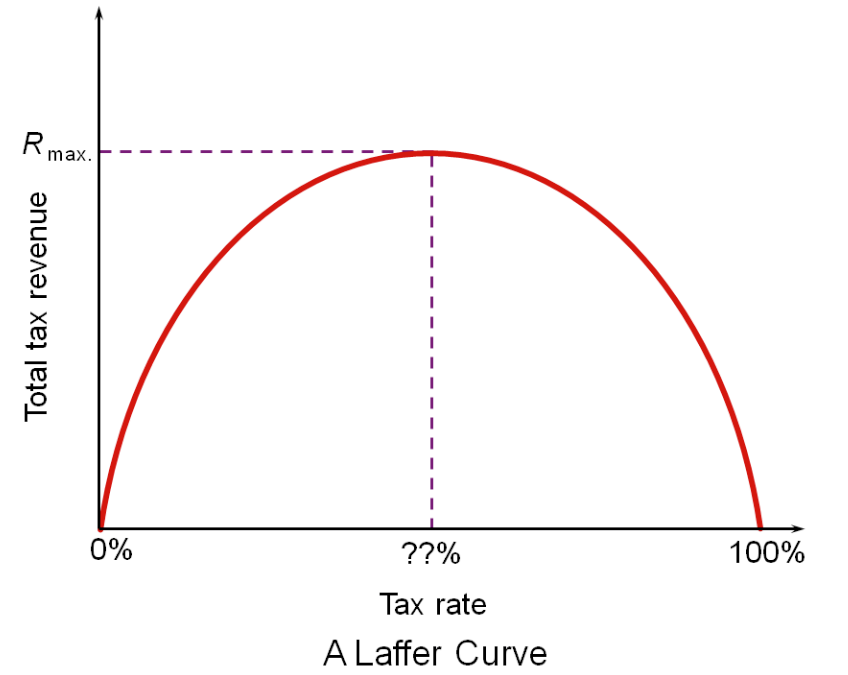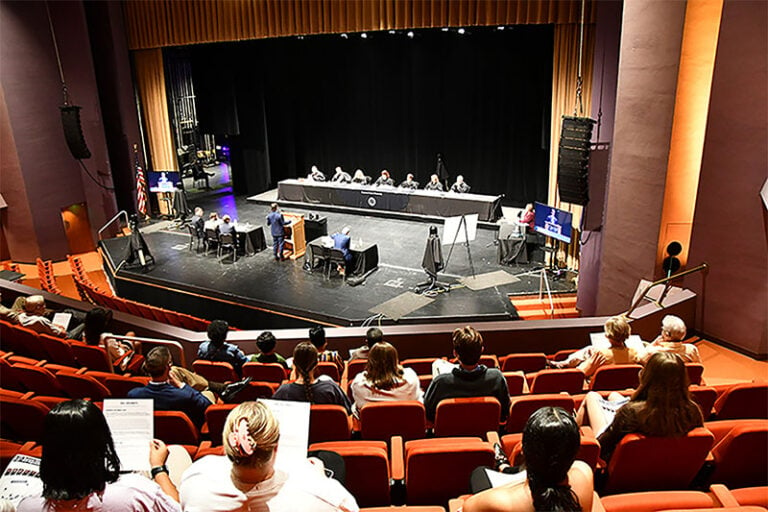When a municipality faces a budget shortfall, is raising taxes the only answer?
I would start by answering that question with a couple other questions. If you have trouble paying your bills at home one month, is it fair to ask your boss for a raise? If McDonald’s is seeing a decline on profits, should they charge more for a hamburger?
The answer to all of these questions is “no.”
In the example of paying bills at home, we don’t ask for a raise to “make ends meet”. We usually go without some luxury item for a period of time, like cable TV, going to the movies, or eating out at restaurants. Most of us don’t like feeling that “pinch”, so we find other efficiencies to reduce our spending and make sure we live within our means. Sure, asking for a raise may be an option, but if we ask for a raise month-after-month, our boss will probably start looking for our replacement.
In the example of McDonald’s, they don’t charge more for a hamburger every time their profits drop. They find other efficiencies like a less expensive supplier for buns, or look for a more cost-effective health insurance plan for their employees, offer new products, create a new ad campaign, or a develop more efficient way of building a restaurant. Only when they have exhausted all other efforts will they raise the price of their product. But if they continue to raise their prices, people will start to prefer other fast food establishments.
So why wouldn’t this be the same for a municipality? Well, it is!
A fiscally responsible municipality should explore options to find efficiencies, cut costs, or develop some other way to generate revenue before resorting to higher taxes!
These efforts have been stifled, however, since the passage of the Compensating Rate Increase. Kentucky Law states that a city must collect the same amount of taxes each year (+/- 2%). If the city collects less taxes than the previous year, they may increase their taxes without a vote of the people (up to a 4% increase).
Many politicians will say “We didn’t raise taxes! We took the compensating rate.” Hogwash. When a tax rate goes up, it is a rate increase. Period. It is not the fault of the citizen that the city is not collecting the same amount as they did before. The biggest problem is that many of these “compensating rate increases” are negligible, and go unnoticed by most taxpayers.
I know what you’re thinking: “Tyson, why are you being such a tightwad? Your taxes are only going up $30 per year!”
Well, it’s not the amount of the increase that’s disturbing, it’s the principle. Why should a municipality seek efficiencies if they can just ask for a little more each year? That is the lazy way of governing. In addition, it is these small changes that have created our bloated, out-of-control federal government.
Instead, the city should be asking itself some critical questions, even if the shortfall is negligible. Is the shortfall caused by the exit of a business? If so, why did they leave? Has the city made efforts to correct the reason, or to fill/ offset the void? What can the city do to attract businesses? The majority of the revenue for many municipalities is from businesses, and payroll taxes.

Is the shortfall caused by declining property values? The city better do something quick (other than raising taxes)! This could be a “coffin-nail.” Businesses and residents will flee to a friendlier, more stable place.
Is the shortfall caused by new programs, higher costs, or additional staff? Hiring a consultant may be the right answer to verify the expenses are justified.
Very rarely are tax rate increases justified. We have become numb to the belief that it’s just the way things work. No, it isn’t. Humor me for a moment, and let me explain the Laffer Curve. It’s not called the Laffer Curve because it’s funny. It’s named after Arthur Laffer, an economist who popularized the concept in the 1980s. It is a representation of the relationship between rates of taxation and the resulting levels of government revenue. See below:

If a city’s tax rate is 0%, it will collect $0. Likewise, if a city has a tax rate of 100%, people have no incentive to work or do business in the city, so the taxes collected are still $0.
Each municipality has a “sweet spot” for their tax rate. If the tax rate continues to increase, and the municipality continues to collect less taxes, then they are on the wrong side of the curve! Many municipalities are experiencing this in Northern Kentucky.
So when your municipality is experiencing a budget shortfall, the problem may not be that the tax rate is too low – but rather that it is too high! By lowering the tax rate, businesses may be interested in relocating to your city, rather than away from it. Businesses bring jobs. Jobs bring home-owners. Home-owners bring better neighborhoods. Better neighborhoods and businesses bring higher revenue for the city.
So the next time you hear of a municipality “taking the compensating rate”, challenge the leadership to fix the source of the problem by finding a way to generate more revenue (other than raising the tax rate), or reduce their expenses.
Tyson Hermes is a husband, father, builder, business owner, beekeeper, and Mayor of Erlanger. Thanks to the efforts of the dedicated staff, he says, Erlanger has lowered property taxes for two years straight and taken advantage of a regional economic boom. Storefronts are filling, businesses are expanding, and new development is at an unprecedented level.


















Second year he has lowered taxes, and working to the good of all. Good for Tyson Hermes! Erlanger is lucky to have you as their Mayor.
My taxes are being raised again this year – – oh, pardon me. The “Compensating Rate” is going up this year. Whatever you call it, more money will come out of my pocket to go into the coffers. Our commissioners, with the exception of one who always votes NO on tax increases, looked us in the eye and swore that they were not raising our rates this year. Not the Tax Rate, but their “Compensating Rate.” It all translates to me having to pay more dollars, and cut more corners. Somewhere. Again.
Hey, Tyson . . . Would you consider giving a class on this Economics 101 to our mayor and city and county commissioners? We could pay you to be a consultant out of our lousy “Compensating Rate.”
Tyson is my kind of Mayor. A strong man of principle who is not out to plunder the taxpayers like every other mayor under the Sun.